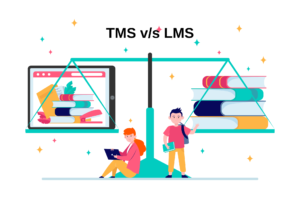Creating an engaging and human candidate experience is crucial in a competitive candidate short market. Skill testing offers a competitive advantage, as merit-based hiring leads to more extended stays and better performance. Utilizing skills assessments can fill open positions, regardless of applicants’ volume.
What is a skill test?
A skills test is an assessment designed to provide an objective and validated evaluation of a candidate’s ability to perform the tasks mentioned in the job description.
A skills exam typically consists of various question formats aimed at assessing a candidate’s job readiness. An effective skills exam features questions aligned with the actual job tasks and accurately measures key performance indicators. Additionally, it should directly address the responsibilities of the open position. Furthermore, many skills assessments incorporate immersive elements, such as coding tasks or job simulations, to replicate real-world scenarios
Another method for assessing job preparedness involves using established psychometric tests to identify valuable soft skills such as motivation, diligence, resilience, and emotional intelligence. Unlike a skills test, a personality assessment predicts how an individual may behave in specific situations rather than evaluating their ability to perform a task.
The Process of Skill Testing
Skill testing performs at its best when the questions are carefully tailored to the position and the requirements of the recruiting team. To gain a comprehensive understanding of the candidate’s performance in various situations, it’s advisable to incorporate a mix of question types when creating a skills test.
There are many different methods to set up a skills test, and in the part after this one, we’ll discuss the specifics of how to conduct the test. However, creating an intelligent aptitude test requires some upfront planning on the part of the hiring manager and team.
Deloitte’s research offers the following example procedure for selecting and utilizing skill-testing questions:
- List the “human elements” that the job requires.
- Compile a list of questions that will gauge and forecast these human characteristics
- Utilize the information collected from the skill evaluations to strengthen the selection procedure.
- After hiring, analyze the recruiting assessment’s effectiveness to make sure the questions produced the desired outcome.
The primary purpose of a skills evaluation is to shift the focus away from the traditional CV and instead provide candidates with an opportunity to showcase their abilities. Effective collaboration between the recruiting team and the department hiring the new employee is essential for crafting a well-rounded set of questions. Below, we outline the steps these teams can take to plan and execute a successful skills evaluation.

Utilizing Tests of Skill When Hiring
When it comes to incorporating a skills assessment into your hiring process, timing plays a crucial role. Utilizing web-based tests as the initial screening stage through the Littera platform, many organizations can reduce expenses and make more informed hiring decisions. These tests efficiently filter out the least suitable candidates, resulting in a smaller, high-quality candidate pool that can proceed to the more personalized and costly phases of the selection process.
Utilize skill tests as a tool for assessing applicants rather than merely for screening them out. One common challenge faced by recruiters is the overwhelming number of applicants, making it impractical to thoroughly review each candidate’s qualifications. Intelligent algorithms and artificial intelligence (AI) tools can expedite candidate assessments, providing swift results while minimizing the impact of human bias in the evaluation process.
Why Use Skill Tests?
Small and medium-sized enterprises (MSMEs), as well as non-profit organizations (NPOs) and non-governmental organizations (NGOs), have a pressing need for skilled employees just like any other industry. These entities often operate with lean resources, and pre-employment assessments offer a valuable means to fulfill their missions with reduced turnover and improved overall team performance. Pre-employment tests ensure that every hiring decision counts by identifying the traits and abilities that are highly indicative of job success across a diverse range of positions
What Tests to Use?
The tests you administer depend on the responsibilities for that particular job, and MSMEs, NPOs and NGOs employ a wide variety of job types within their organizations.
For roles that typically require a college degree, like manager/training co-ordinators roles or grant writing positions, the Criteria Cognitive Aptitude Test (CCAT) is most commonly administered. This assessment measures a candidate’s critical thinking and problem-solving ability, providing an indication of their ability to learn quickly and make decisions on the job.
To assess personality fit for a wide variety of roles, the Employee Personality Profile (EPP) is a flexible personality assessment that provides a measure of job fit depending on the position type. This test evaluates how comfortable a candidate will be in a particular role, which is a strong predictor of long-term retention.
Why Littera?
- State-of-the-art, cloud-based assessment platform
- Unlimited access to all of our aptitude, personality, and skills tests
- Tests backed by science and validated for employment
- Dedicated customer success managers and unlimited training and support
- Pay as you go pricing model
Do skill tests work?
Skill testing has proven to be more effective than traditional hiring practices, with some limitations to consider. Aptitude assessments can potentially replace the need for resume screening, although it comes with a risk of excluding top candidates unfairly. Instead of screening in, this method may inadvertently screen out highly capable individuals. Resumes and cover letters, often seen as the quickest way for recruiters or algorithms to sift through candidate profiles, may not accurately predict job success.
To achieve the best results in skills examinations, it’s essential to follow the right approach. While some recruiters focus solely on technical skills aligned with the immediate job requirements, many CEOs emphasize the significance of soft skills like teamwork and leadership. Striking the right balance is crucial for candidate success
Conclusion:
Incorporating skill assessment exams proves to be a valuable asset for Organisations in their candidate selection process. These assessments play a pivotal role in efficiently managing existing personnel by placing them in roles that best suit their capabilities.
By doing so, organizations can enhance employee productivity and steer clear of the detrimental costs associated with suboptimal hiring decisions. These benefits ultimately contribute positively to the organization’s bottom line.
In summary, the implementation of skill evaluation tests empowers organizations with knowledge and, with the assistance of the Littera learning platform tailored for MSMEs, NPOs & NGOs, facilitates seamless organizational growth.






